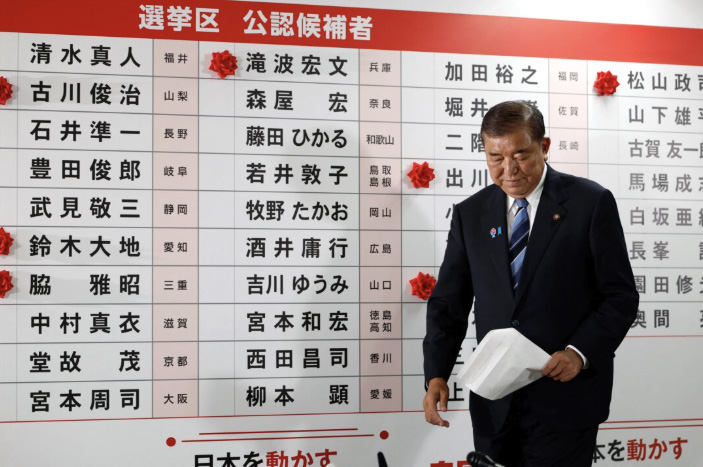By Chris Summers
Contributing Writer
Japanese Prime Minister Shigeru Ishiba, leader of the center-right Liberal Democratic Party, said on Monday he would not stand down after losing a key election on Sunday.
The parliamentary election defeat came as Japan faced an Aug. 1 deadline to strike a tariff deal with the United States.
The LDP and its junior coalition partner, Komeito, were trying to hold onto a majority in the 248-seat upper house, the House of Councillors, but fell three seats short in Sunday’s vote.
During a press conference on Monday, Ishiba said, “While I painfully feel my serious responsibility over the election results, I believe I must also fulfill my responsibility I bear for the country and the people so as not to cause politics to stall or go adrift.”
“Challenges such as global situation and natural disaster won’t wait for a better political situation.”
The LDP lost control of the more powerful lower house of the National Diet, the House of Representatives, in October 2024.
Ishiba said the LDP and Komeito had agreed to maintain their coalition, while seeking cooperation from opposition parties.
The Democratic Party for the People — which campaigned for higher take-home pay, according to a report in the Japan Times — was the big winner, and is expected to increase its number of seats from 4 to 17.
Another gainer was the nationalist Sanseito, which campaigned on stricter regulations on foreigners and traditional gender roles, and which is set to win 14 seats.
Yoshihiko Noda, leader of the center-left Constitutional Democratic Party of Japan — which won 22 seats — told the national broadcaster NHK his priority was to form an alliance among the opposition.
Noda — who was prime minister between September 2011 and December 2012 — said, “Public opinion clearly said ‘no’ to the Ishiba government.”
Ishiba said it made no sense to create a political vacuum as the country faced a series of challenges, including the tariff deadline with the United States.
The Path to a Solution
He said he was staying on, “to put the pressing issues on a path to a solution.”
Japan’s chief tariff negotiator, Economic Revitalization Minister Ryosei Akazawa, is heading to Washington this week for an eighth round of trade talks.
Ishiba said he hoped to reach a mutually beneficial deal with President Donald Trump “as soon as possible.”
On July 7, Trump issued letters announcing reciprocal tariffs on a number of countries, including 25% tariffs on Japan and South Korea.
In the letters, released on social media platform Truth Social, Trump warned that the tariffs could be increased if the countries raise their own trade barriers, or fail to address long-standing trade imbalances with the United States.
In September 2024, the LDP chose Ishiba, 68, to take over as leader and prime minister from Fumio Kishida, after a series of corruption scandals saw the party’s support drop below 20%.
It was the fifth time that Ishiba — who has been in the Japanese Parliament since 1986 and was defense minister between 2007 and 2008 — had bid for leadership of the party.
Japan’s Inflation Woes
On taking office, Ishiba said that his priority would be revitalizing consumption while protecting people from rising inflation.
But inflation rose from 2.5% to 4% between October 2024 and January of this year, before falling back to 3.3% after the Bank of Japan raised its interest rate to 0.5% in January.
Ishiba promised to “quickly analyze the results and learn the lesson” from the election defeat.
On Sunday, he told TV Tokyo, “We are engaged in extremely critical tariff negotiations with the United States … we must never ruin these negotiations. It is only natural to devote our complete dedication and energy to realizing our national interests.”
The LDP — a pro-business party with a long tradition of support for the United States — has ruled Japan for most of its post-war history.
The Associated Press contributed to this report.










